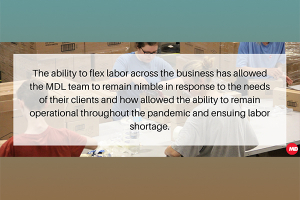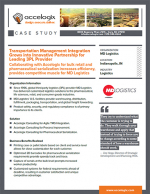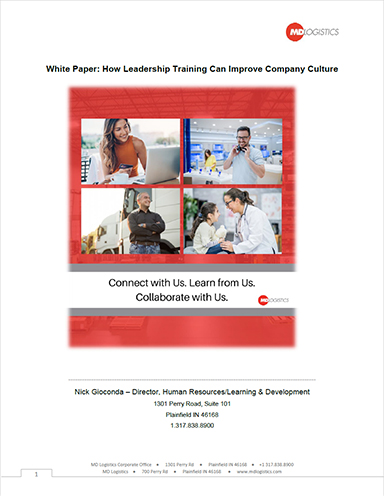How Leadership Training can Improve Company Culture
In this paper we look at how an investment in a leadership training and development program can pay long term dividends.
Introduction
Third-party logistics (3PL) providers, like most companies, are focused on results.
However, all reputable 3PL providers understand that an investment in training its warehouse operations’ employees is a necessary cost of doing business.
Certifications for employees driving fork trucks, using RF guns to scan in product, and operating pick to light systems are mandatory to ensure the safety of employees and that the job is completed correctly.
Problem
Some 3PL providers resist making any further training investments specifically at the leadership level, failing to realize the positive impact on long-term business results.
According to Carol J. Dell’Amore, Ph.D. and director of the National Leadership Institute at the University of Maryland University College;
“High performing organizations have some kind of leadership development program in place, and the culture puts a high priority on managers developing the talents of the people that they manage.”
David Witt, researcher with The Ken Blanchard Companies says, “better leadership practices can improve an organization’s bottom line by hundreds of thousands-or even millions-of dollars, depending on the size of the organization and current gaps in management practices.”
When training leaders it is important for leaders to know they need to ask for feedback as often as they give it, the result is the ability for any employee at any level to be able to raise an issue as soon as it arises without fear the recipient will not be open to receiving the information.
Leadership training, development and monitoring is conducted by the training department, which is a function of HR. Training and HR go hand in hand; from onboarding new leaders to staying in contact with them throughout their careers; both functions on the individual and their success within the 3PL provider.
What’s Related




Favorites





